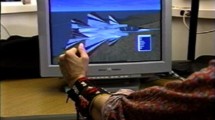Abstract
Since ancient times philosophy has dealt with the relation between technology and man. Nowadays this is especially true in the context of the philosophy of technology. Technology is interpreted as an anthropological constant to construct an environment in which man can survive. Acting in the field of technology is to act rationally with a purpose, i.e., in the framework of a means-end relation, and it is employed for coping with “experiences” (Widerfahrnisse) by means of using tools. Like technology, language can be reconstructed as a symbolic form and thus as a technological means, as a tool so that the employment of metaphors can also be described as an employment of tools. Using technology has effects on man as well as on his self-image. Thus, philosophy of technology creates different ideas of man, which have to become subject to ethical discourses.
Zusammenfassung
Die Philosophie befasst sich seit der Antike mit dem Verhältnis von Technik und Mensch, in der Gegenwart speziell im Rahmen der Technikphilosophie. Technik wird als anthropologische Konstante gedeutet, mittels derer der Mensch sich seine Umwelt lebensdienlich gestalten kann, um sein Überleben zu sichern. Technisches Handeln ist zweckrational, eingesetzt zur Widerfahrnisbewältigung durch Gebrauch von Werkzeugen. Wie Technik lässt sich Sprache als symbolische Form und so als technisches Mittel, als Werkzeug rekonstruieren, so dass auch der Einsatz von Metaphern als Gebrauch von Werkzeugen beschrieben werden kann. Durch den Umgang mit Technik verändern sich der Mensch und die Bilder, die er von sich macht. Im Rahmen technikphilosophischer Überlegungen werden daher auch neue Menschenbilder erzeugt, die sich als Technikfolgen einer ethischen Beurteilung unterziehen müssen.
Résumé
La philosophie se penche depuis l’Antiquité sur le rapport entre la technique et l’homme, de nos jours spécialement dans le cadre de la philosophie de la technique. La technique est interprétée comme constante anthropologique, par laquelle l’homme peut façonner son environnement dans son intérêt pour garantir sa survie. L’action technique est rationnelle et ciblée, elle est utilisée pour maîtriser les calamités par l’usage d’outils. Comme la technique, le langage peut être reconstruit comme forme symbolique et donc comme instrument technique, comme outil, de sorte que le recours aux métaphores peut aussi être décrit comme le recours à des outils. L’usage de la technique entraîne une transformation de l’homme et des représentations qu’il a de lui-même. Dans le cadre de réflexions relevant de la philosophie de la technique, de nouvelles représentations humaines sont constituées, qui doivent se soumettre à des évaluations éthiques en tant que conséquences de la technique.
Similar content being viewed by others
Notes
In German language, the connotations of the term Technik have a much more comprehensive meaning than it is the case with its English counterpart “technique”. Trying to elucidate in the following different aspects of what in German is understood when using the terms Technik/technisch this paper will discuss the issue in question by using the English terms “technology”/“technological” for it.
Compare also: Rohbeck (1993, p. 233).
See Depart. anim 686a 27 ff. Also according to Aristotle, mind/soul do not ultimately depend on the body, are not withering with it, see De an. 429a 26, 430 a 17 f.
According to Marx, the worker is alienated from the product of his work, from the production process, from the species of human beings, and from other humans (Marx 1977, pp. 511–518).
For the following arguments, see Flessner (2000, 11 f.)
References
Anders G (2002) Die Antiquiertheit des Menschen, Bd 1, München
Cassirer E (1964) Philosophie der symbolischen Formen. Darmstadt
Cassirer E (1996) Form und Technik. In: Fischer P (ed) Technikphilosophie, Leipzig, pp 157–213
Flessner B (ed) (2000) Nach dem Menschen. Der Mythos einer zweiten Schöpfung und das Entstehen einer posthumanen Kultur, Freiburg
Gehlen A (1961) Ein Bild vom Menschen. In: Gehlen A Anthropologische Forschung. Zur Selbstbegegnung und Selbstentdeckung des Menschen. Reinbeck, Hamburg, pp 44–54
Gehlen A (1996) Neuartige kulturelle Erscheinungen. In: Fischer P (ed) Technikphilosophie. Von der Antike bis zur Gegenwart. Leipzig, pp 214–236
Göller T (1986) Ernst Cassirers kritische Sprachphilosophie, Würzburg
Hartmann D, Janich P (1996) Methodischer Kulturalismus. In: Hartmann D, Janich P (ed) Methodischer Kulturalismus. Zwischen Naturalismus und Postmoderne, Frankfurt, pp 9–69
Horkheimer M (1985) Zur Kritik der instrumentellen Vernunft. Frankfurt
Horkheimer M (1988) Traditionelle und kritische Theorie. In: Gesammelte Schriften. Bd 4, Frankfurt, pp 162–216
Hubig C (1993) Die Notwendigkeit einer neuen Ethik der Technik. Forderungen aus handlungstheoretischer Sicht. In: Rapp F (ed) Neue Ethik der Technik? Philosophische Kontroversen. Wiesbaden, pp 145–154
Hügli A (1980) Art “Mensch”. In: Ritter J, Gründer K, Historisches Wörterbuch der Philosophie. vol 5, Basel, pp 1059–1105
Janich P (1996) Technik. In: Mittelstraß J (ed) Enzyklopädie Philosophie und Wissenschaftstheorie. vol 4, Stuttgart/Weimar, pp 214 – 217
Kapp E (1877) Grundlinien einer Philosophie der Technik. Zur Entstehungsgeschichte der Cultur aus neuen Gesichtspunkten, Braunschweig
Klages L (1956) Mensch und Erde. In: Klages L Mensch und Erde. Zehn Abhandlungen, Stuttgart
Marx K (1969) Theses on Feuerbach. In: Marx K, Engels F, Selected works, vol 1, pp 13–15, Moscow (USSR)
Marx K (1977) Ökonomisch-philosophische Manuskripte. In: Marx K, Engels F, Werke. Ergz bd 1, Berlin, pp 465–588
Mittelstraß J (1991) Die Angst und das Wissen. In: Dobmeier G (ed) Angst vor der Technik—Vertrauen in die Schöpfung? Munchen, pp 13–30
Rayfield D (1968) Action. In: Nous 2 pp 131–145. Cited in: Ritter J, Gründer K, Gabriel G, Historisches Wörterbuch der Philosophie. vol 12, Basel 2004, “Widerfahrnis”, pp 678–680
Rohbeck J (1993) Technologische Urteilskraft. Zu einer Ethik technischen Handelns, Frankfurt
Rohbeck J Technikphilosophie im 19. und frühen 20. Jahrhundert, see: http://tu-dresden.de/die_tu_dresden/fakultaeten/philosophische_fakultaet/fak/zit/lehre/folder.2007-04-10.6241251346/texte_ring/Technikphilosophie19%2020%20Jh.pdf
Sachsse H (1978) Anthropologie der Technik. Ein Beitrag zur Stellung des Menschen in der Welt, Braunschweig
http://www.ib.hu-berlin.de/~wumsta/infopub/textbook/definitions
Acknowledgment
This study was funded by the BMBF research initiative “Geisteswissenschaften im gesellschaftlichen Dialog”.
Author information
Authors and Affiliations
Corresponding author
Rights and permissions
About this article
Cite this article
Engel, T., Henckel, U. Human beings, technology and the idea of man. Poiesis Prax 5, 249–263 (2008). https://doi.org/10.1007/s10202-008-0049-z
Published:
Issue Date:
DOI: https://doi.org/10.1007/s10202-008-0049-z




